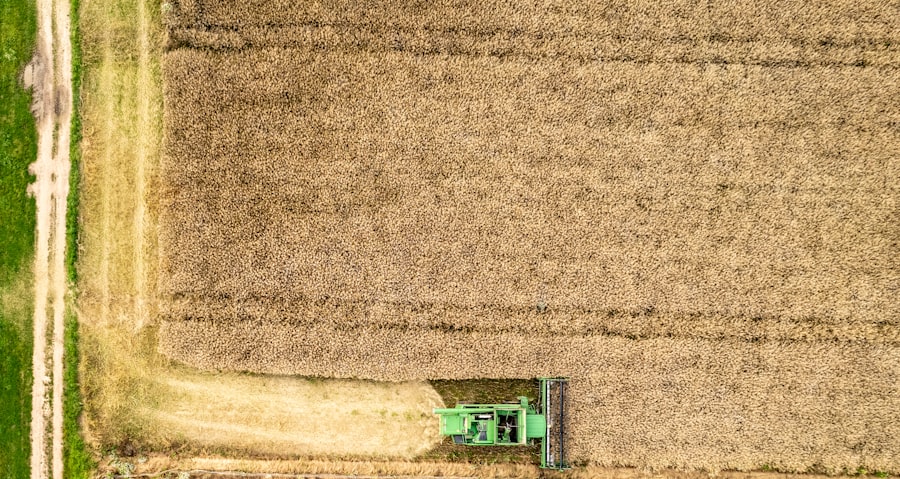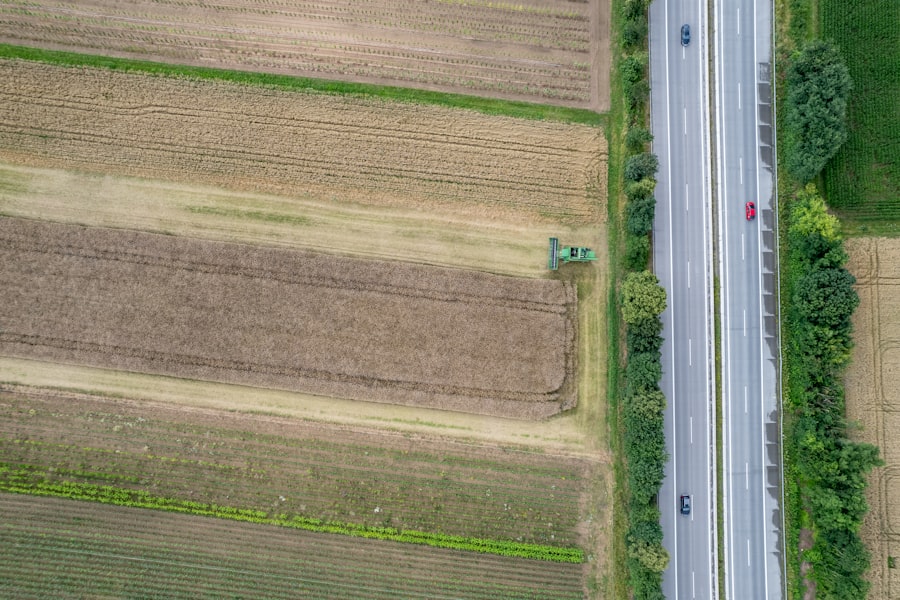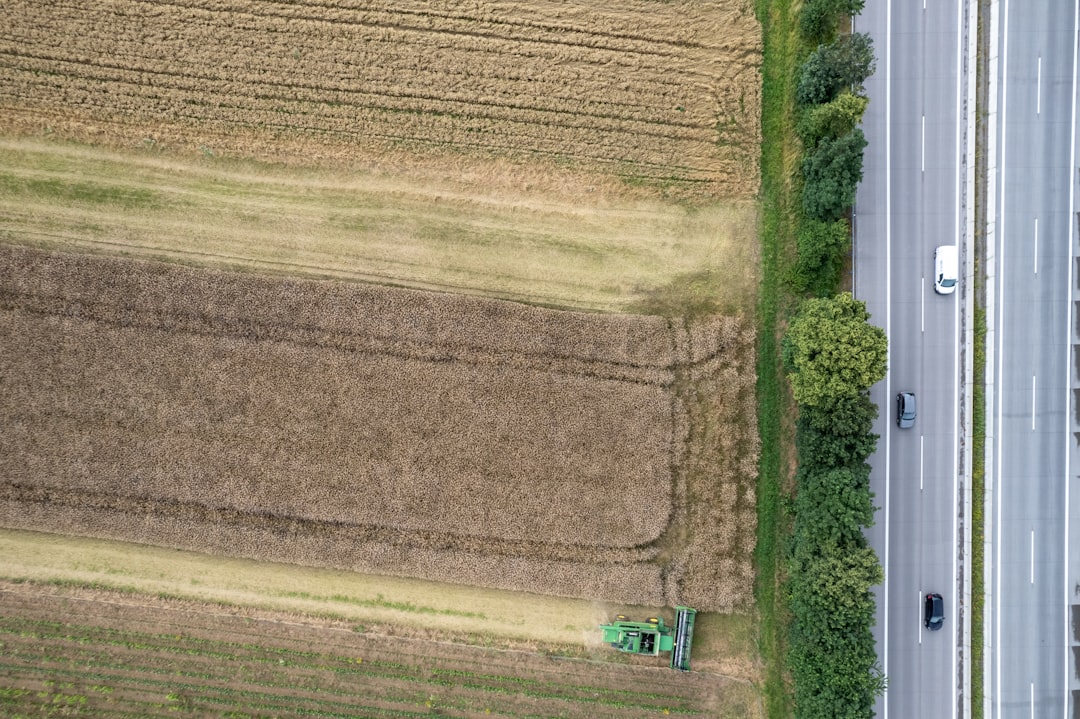Precision agriculture represents a transformative approach to farming that leverages technology to enhance productivity and sustainability. This innovative methodology focuses on the precise management of field variability in crops, allowing farmers to optimize inputs such as water, fertilizers, and pesticides. By utilizing data-driven insights, precision agriculture aims to increase crop yields while minimizing environmental impact.
The concept has gained traction in recent years, driven by advancements in technology and a growing awareness of the need for sustainable agricultural practices. As the global population continues to rise, the demand for food production intensifies, making precision agriculture not just a trend but a necessity. Farmers are increasingly faced with the challenge of producing more food with fewer resources, and precision agriculture offers a solution.
By integrating various technologies, including GPS, remote sensing, and data analytics, farmers can make informed decisions that lead to more efficient farming practices. This article explores the multifaceted impact of precision agriculture on farming practices, labor requirements, job opportunities, and rural communities.
Key Takeaways
- Precision agriculture utilizes technology to optimize farming practices and increase efficiency.
- Technology plays a crucial role in precision agriculture, including the use of GPS, sensors, drones, and data analytics.
- Precision agriculture is changing farming practices by enabling farmers to make data-driven decisions and target specific areas for inputs.
- Precision agriculture can reduce labor requirements through automation and the use of technology for monitoring and managing crops.
- Job opportunities in precision agriculture are growing, with a demand for skills in data analysis, technology, and agronomy.
The Role of Technology in Precision Agriculture
Technology serves as the backbone of precision agriculture, enabling farmers to collect and analyze vast amounts of data. Tools such as drones, satellite imagery, and soil sensors provide real-time information about crop health, soil conditions, and weather patterns. This data allows farmers to make informed decisions about when to plant, irrigate, and harvest their crops.
For instance, drones equipped with multispectral cameras can identify areas of a field that require more attention, ensuring that resources are allocated efficiently. Moreover, the integration of Internet of Things (IoT) devices has revolutionized the way farmers monitor their fields. Smart sensors can track moisture levels and nutrient content in the soil, sending alerts to farmers when conditions are optimal for planting or when irrigation is needed.
This level of precision not only enhances productivity but also reduces waste and environmental impact. As technology continues to evolve, its role in precision agriculture will only become more significant, paving the way for smarter farming practices.
How Precision Agriculture is Changing Farming Practices

The adoption of precision agriculture is fundamentally altering traditional farming practices. Farmers are moving away from one-size-fits-all approaches and embracing tailored strategies that cater to the specific needs of their crops and fields. This shift is evident in practices such as variable rate application (VRA), where inputs like fertilizers and pesticides are applied at varying rates across a field based on specific requirements.
This targeted approach not only improves crop health but also reduces costs associated with over-application. Additionally, precision agriculture encourages sustainable practices by promoting efficient resource use. For example, by utilizing data analytics to determine the optimal amount of water needed for irrigation, farmers can conserve water resources while ensuring their crops receive adequate hydration.
This is particularly crucial in regions facing water scarcity. As farmers adopt these innovative practices, they are not only enhancing their productivity but also contributing to a more sustainable agricultural system that prioritizes environmental stewardship.
The Impact of Precision Agriculture on Labor Requirements
| Metrics | Impact |
|---|---|
| Labor Requirements | Reduced by up to 50% |
| Efficiency | Increased by 20-30% |
| Yield | Increased by 5-10% |
| Cost Savings | Up to 25% |
The implementation of precision agriculture has significant implications for labor requirements in the agricultural sector. While some traditional farming roles may diminish due to automation and advanced technologies, new opportunities are emerging that require specialized skills. For instance, the use of drones and automated machinery necessitates operators who are trained in these technologies.
As a result, the workforce must adapt to meet the changing demands of the industry. Moreover, precision agriculture often requires a higher level of technical expertise than traditional farming methods. Workers must be proficient in data analysis and technology management to effectively utilize the tools available.
This shift in skill requirements may lead to a reduction in demand for unskilled labor while increasing the need for skilled technicians and data analysts. Consequently, the agricultural workforce is evolving, necessitating a reevaluation of training programs and educational pathways to prepare individuals for these new roles.
Job Opportunities in Precision Agriculture
As precision agriculture continues to gain momentum, it is creating a wealth of job opportunities across various sectors within the agricultural industry.
Agronomists play a crucial role in advising farmers on best practices based on data insights, while data analysts interpret complex datasets to inform decision-making processes.
Additionally, companies that develop agricultural technologies are also expanding their workforce to meet growing demand. Roles in software development, engineering, and sales are essential for creating and promoting innovative solutions that support precision agriculture. As the industry evolves, it is expected that job opportunities will continue to expand, providing a diverse range of career paths for individuals interested in contributing to the future of farming.
Skills and Training Needed for Precision Agriculture Jobs

To thrive in the field of precision agriculture, individuals must possess a unique set of skills that blend agricultural knowledge with technological proficiency. A strong foundation in agronomy is essential for understanding crop management practices and soil health. However, as technology becomes increasingly integrated into farming operations, skills in data analysis and technology management are equally important.
Training programs focused on precision agriculture are emerging at universities and vocational schools, offering courses that cover topics such as remote sensing, GIS (Geographic Information Systems), and data analytics. Additionally, hands-on experience with agricultural technologies is invaluable for aspiring professionals. As the industry continues to evolve, ongoing education and training will be crucial for individuals seeking to stay competitive in this dynamic field.
The Effect of Precision Agriculture on Traditional Farming Jobs
While precision agriculture presents numerous benefits, it also poses challenges for traditional farming jobs. The automation of certain tasks may lead to a decline in demand for manual laborers who perform routine agricultural tasks such as planting and harvesting. As machinery becomes more sophisticated and capable of performing these functions autonomously, there is a risk that some traditional roles may become obsolete.
However, it is important to note that precision agriculture does not entirely eliminate traditional farming jobs; rather, it transforms them. Many farmers are finding new ways to incorporate technology into their operations while still relying on human expertise for critical decision-making processes. The key lies in adapting to these changes and embracing new roles that complement technological advancements rather than resisting them.
The Potential for Job Displacement in Agriculture
The rise of precision agriculture raises concerns about potential job displacement within the agricultural sector. As automation and advanced technologies become more prevalent, there is a fear that many workers may find themselves without employment opportunities. While it is true that certain roles may diminish or evolve significantly, it is essential to recognize that new job opportunities will also arise as the industry adapts.
To mitigate the impact of job displacement, it is crucial for stakeholders—including farmers, educational institutions, and policymakers—to collaborate on strategies that support workforce transition. This may involve investing in retraining programs that equip displaced workers with the skills needed for emerging roles within precision agriculture. By fostering a culture of continuous learning and adaptation, the agricultural sector can navigate these changes while ensuring that workers remain integral to its success.
The Role of Data Analysis and Management in Precision Agriculture Jobs
Data analysis and management play a pivotal role in precision agriculture jobs, as they enable professionals to derive actionable insights from complex datasets. With the increasing availability of data from various sources—such as satellite imagery, soil sensors, and weather forecasts—individuals working in this field must be adept at interpreting information to inform decision-making processes. Data analysts in precision agriculture are responsible for collecting and processing data related to crop performance, soil health, and environmental conditions.
They utilize advanced software tools to visualize trends and patterns that can guide farmers in optimizing their practices.
The Influence of Precision Agriculture on Rural Communities
Precision agriculture has far-reaching implications for rural communities beyond its impact on individual farms. By enhancing productivity and sustainability, this approach can contribute to economic growth in rural areas by increasing farm profitability and creating new job opportunities. As farmers adopt advanced technologies, they may invest more in local services and businesses, stimulating economic activity within their communities.
Furthermore, precision agriculture can help address some of the challenges faced by rural areas, such as population decline and limited access to resources. By promoting efficient resource use and sustainable practices, rural communities can become more resilient in the face of environmental challenges. As these communities embrace innovation through precision agriculture, they have the potential to thrive economically while preserving their agricultural heritage.
The Future of Jobs in Precision Agriculture
The future of jobs in precision agriculture appears promising as technology continues to advance and reshape the agricultural landscape. With an increasing emphasis on sustainability and efficiency, there will be a growing demand for skilled professionals who can navigate this evolving field. As farmers seek to optimize their operations through data-driven insights and innovative technologies, job opportunities will expand across various sectors.
Moreover, as society becomes more aware of the importance of sustainable food production practices, careers related to precision agriculture will likely gain recognition and respect within the broader job market. Educational institutions will play a crucial role in preparing the next generation of agricultural professionals by offering relevant training programs that align with industry needs. In conclusion, precision agriculture represents a significant shift in farming practices that is reshaping labor requirements and creating new job opportunities within the agricultural sector.
While challenges such as job displacement exist, proactive measures can be taken to ensure that workers are equipped with the skills needed for success in this dynamic field. As technology continues to evolve and influence rural communities positively, the future of jobs in precision agriculture looks bright.
Precision agriculture, a farming management concept that uses technology to monitor and optimize agricultural production, is significantly transforming the agricultural job landscape. By integrating advanced technologies such as GPS, IoT, and data analytics, precision agriculture enhances productivity and efficiency, potentially reducing the need for traditional farming roles while creating new opportunities in tech-driven agricultural sectors. An insightful article discussing the broader implications of precision agriculture on employment can be found on MyGeoQuest. For more detailed information, you can read the article by visiting this link. This resource delves into how precision agriculture is reshaping job roles and the skills required in the modern agricultural industry.
WATCH NOW! Why America’s Heartland Is Disappearing Fast
FAQs
What is precision agriculture?
Precision agriculture is a farming management concept that uses technology to optimize crop yields and reduce input costs. It involves the use of GPS, sensors, drones, and other advanced equipment to collect and analyze data for more precise decision-making in farming practices.
How does precision agriculture impact jobs in the agricultural industry?
Precision agriculture has the potential to create new job opportunities in the agricultural industry, particularly in the fields of data analysis, technology development, and equipment maintenance. However, it may also lead to a decrease in the demand for traditional farming jobs as automation and technology take over certain tasks.
What are some specific job roles that may be affected by the adoption of precision agriculture?
Traditional farming roles such as manual laborers, tractor drivers, and crop scouts may see a decrease in demand as precision agriculture technology becomes more prevalent. On the other hand, there may be an increased demand for data analysts, GIS specialists, drone operators, and precision equipment technicians.
How can workers in the agricultural industry prepare for the impact of precision agriculture on jobs?
Workers in the agricultural industry can prepare for the impact of precision agriculture by acquiring new skills related to technology, data analysis, and equipment maintenance. This may involve seeking out training programs, certifications, or higher education in relevant fields to stay competitive in the evolving job market.
What are the potential benefits of precision agriculture for job creation?
Precision agriculture has the potential to create new job opportunities in the agricultural industry by driving innovation and technological advancements. This includes roles in research and development, software engineering, and the manufacturing and maintenance of precision agriculture equipment.
